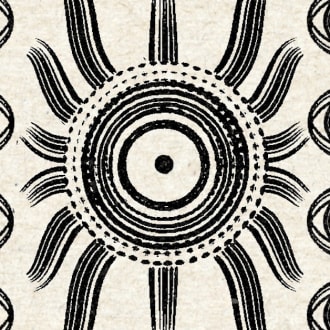The Best of Noema Magazine
20+ most popular Noema Magazine articles, as voted by our community.
New this Week
These are fresh off the press.
We Need To Rewild The Internet
The internet has become an extractive and fragile monoculture. But we can revitalize it using lessons learned by ecologists.
Traveling At The Speed Of The Soul
Of the three stages of a pilgrimage — departure, initiation and return — the last is the least examined and perhaps most important.
Trending
These are currently making the rounds on Refind.
A Digital Twin Might Just Save Your Life
Digital twins offer humankind the ability to command virtual replicas of forests, oil fields, cities, supply chains — and even, maybe one day, our very bodies.
The Artists Digitally Liberating Colonial Plunder
New technologies offer clandestine ways to “return” works of art stolen during the colonial era — but also challenges of their own.
Noema Magazine on Artificial Intelligence
AI Could Actually Help Rebuild The Middle Class
AI doesn’t have to be a job destroyer. It offers us the opportunity to extend expertise to a larger set of workers.
Artificial General Intelligence Is Already Here
Today’s most advanced AI models have many flaws, but decades from now, they will be recognized as the first true examples of artificial general intelligence.
Noema Magazine on China
China’s Revolution Turns Green
China’s leaders are building a new economy oriented to state-driven technological solutions to the climate crisis. In the process, they aim to construct an entirely different world order that at last…
The Clash Of Two Gilded Ages
Despite their great-power rivalry, America and China are more similar than most people think. Both are living through a Gilded Age and struggling to end excesses of capitalism.
Noema Magazine on Culture
The Tyranny Of Time
The clock is a useful social tool, but it is also deeply political: It benefits some, marginalizes others and blinds us from a true understanding of our own bodies and the world around us.
«Clock time is not what most people think it is. It was created, and it is frequently altered and adjusted to fit social and political purposes.»
The Secret History And Strange Future Of Charisma
How our culture, politics and technology became infused with a mysterious social phenomenon that everyone can feel but nobody can explain.
Noema Magazine on Longevity
Searching For The Secrets To Life Everlasting
For millennia, scientists and technologists have been scouring the natural world for clues on how to live longer. But is anyone any closer to finally defeating aging?
Noema Magazine on Mastodon
Mastodon Isn’t Just A Replacement For Twitter
Users flocking to the platform will need to shift their expectations for social media and become engaged democratic citizens in the life of their networks.
«the anthropologist Anna Lowenhaupt Tsing calls “scalability.” This doesn’t just mean large scale. It means, according to Tsing, “the ability to expand — and expand and expand — without rethinking basic elements.”»
Noema Magazine on Nature
A Single Small Map Is Enough For A Lifetime
What if this bog-standard corner of England is actually full of adventure, nature, wildness, surprises, silence, perspective — if only I bothered to go out and look?
Life Need Not Ever End
New interpretations of the laws of thermodynamics suggest the infamous “heat death” hypothesis, which foretells the end of all life and organization in the universe, might not hold.
Noema Magazine on Politics
How Game Design Principles Can Enhance Democracy
Our democracies are already gamified. Our goal should be to do it better.
The World China Is Building
China’s diplomats and tech companies pin their hopes on partnerships in the Global South.
Popular
These are some all-time favorites with Refind users.
The Disappearing Art Of Maintenance
The noble but undervalued craft of maintenance could help preserve modernity’s finest achievements, from public transit systems to power grids, and serve as a useful framework for addressing climate…
Deep Time Sickness
In Mexico, people who are “tocado” — “touched” — reveal that geological time can emerge through fissures in the land to alter the way we relate to our homes, cities and even ourselves.
What AI Teaches Us About Good Writing
While AI can speed up the writing process, it doesn’t optimize quality — and it endangers our sense of connection to ourselves and others.
«Good writers assess the rhetorical context for their writing and make deliberate decisions about where to conform and where to stray»
How Modernity Made Us Allergic
Our very old immune systems can’t keep up with modern lifestyles and diets, leading to increases in all sorts of chronic health problems like allergies and obesity.
The Rise And Fall Of Chimerica
For decades, America gave China a vision of future prosperity. But today, America has mostly ceased to offer a model for China or anywhere else, leaving China’s leaders without a guide as they chart a…
What is Refind?
Every day Refind picks the most relevant links from around the web for you. is one of more than 10k sources we monitor.
How does Refind curate?
It’s a mix of human and algorithmic curation, following a number of steps:
- We monitor 10k+ sources and 1k+ thought leaders on hundreds of topics—publications, blogs, news sites, newsletters, Substack, Medium, Twitter, etc.
- In addition, our users save links from around the web using our Save buttons and our extensions.
- Our algorithm processes 100k+ new links every day and uses external signals to find the most relevant ones, focusing on timeless pieces.
- Our community of active users gets the most relevant links every day, tailored to their interests. They provide feedback via implicit and explicit signals: open, read, listen, share, mark as read, read later, «More/less like this», etc.
- Our algorithm uses these internal signals to refine the selection.
- In addition, we have expert curators who manually curate niche topics.
The result: lists of the best and most useful articles on hundreds of topics.
How does Refind detect «timeless» pieces?
We focus on pieces with long shelf-lives—not news. We determine «timelessness» via a number of metrics, for example, the consumption pattern of links over time.
How many sources does Refind monitor?
We monitor 10k+ content sources on hundreds of topics—publications, blogs, news sites, newsletters, Substack, Medium, Twitter, etc.
Can I submit a link?
Indirectly, by using Refind and saving links from outside (e.g., via our extensions).
How can I report a problem?
When you’re logged-in, you can flag any link via the «More» (...) menu. You can also report problems via email to hello@refind.com
Who uses Refind?
450k+ smart people start their day with Refind. To learn something new. To get inspired. To move forward. Our apps have a 4.9/5 rating.
Is Refind free?
Yes, it’s free!
How can I sign up?
Head over to our homepage and sign up by email or with your Twitter or Google account.




















